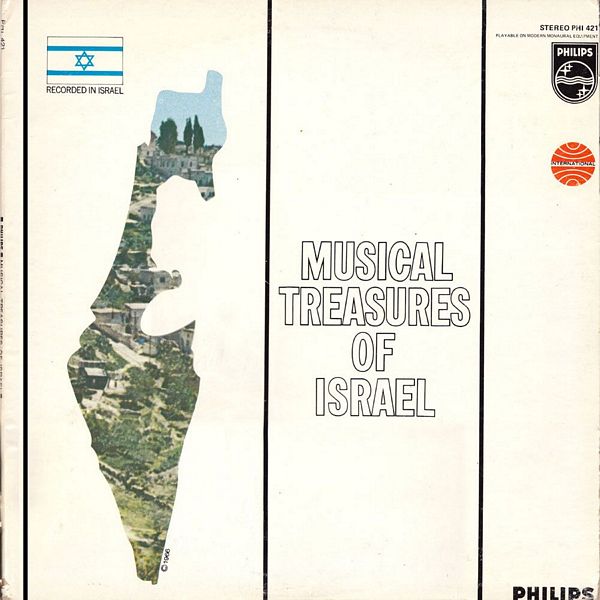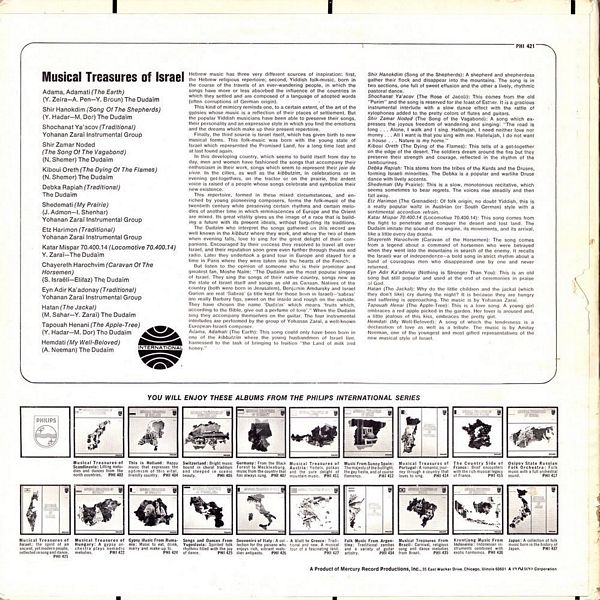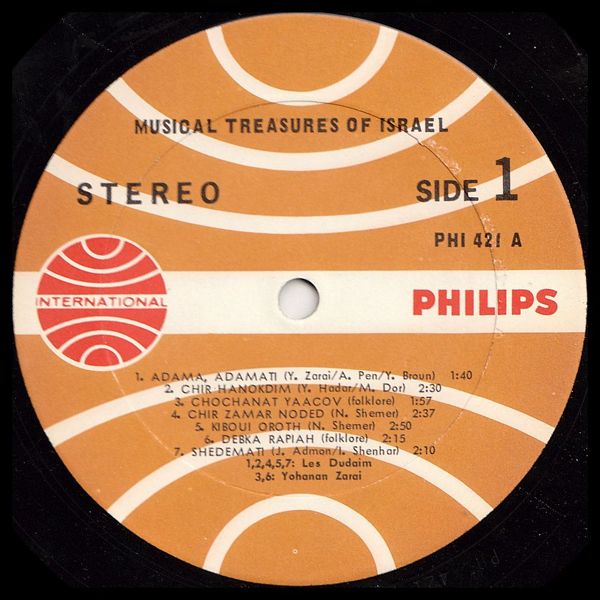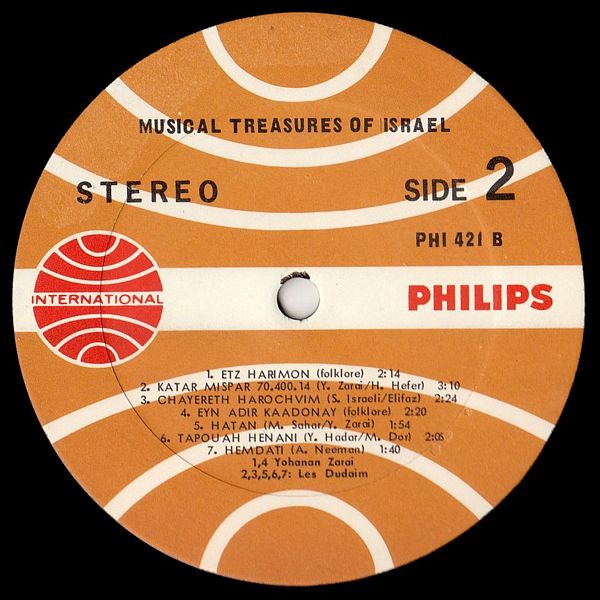

 |


 |
Sleeve Notes
Hebrew music has three very different sources of inspiration: first, the Hebrew religious repertoire; second, Yiddish folk-music, born in the course of the travels of an ever-wandering people, in which the songs have more or less absorbed the influence of the countries in which they settled and are composed of a language of adopted words (often corruptions of German origin).
This kind of mimicry reminds one, to a certain extent, of the art of the gypsies whose music is a reflection of their places of settlement. But the popular Yiddish musicians have been able to preserve their songs, their personality and an expressive style in which you find the emotions and the dreams which make up their present repertoire.
Finally, the third source israel itself, which has given birth to new musical forms. This folk-music was born with the young state of Israel which represented the Promised Land, for a long time lost and at last found again.
In this developing country, which seems to build itself from day to day, men and women have fashioned the songs that accompany their enthusiasm in their work, songs which seem to represent their foie de vivre. In the cities, as well as the kibbutzim, in celebrations or in evening get-togethers, on the tractor or on the prairie, the ardent voice is raised of a people whose songs celebrate and symbolize their new existence.
This repertoire, formed in these mixed circumstances, and enriched by young pioneering composers, forms the folk-music of the twentieth century while preserving certain rhythms and certain melodies of another time in which reminiscences of Europe and the Orient are mixed. Its great vitality gives us the image of a race that is building a future with its present ideals, without forgetting its traditions.
The Dudaim who interpret the songs gathered on this record are well known in the kibbutz where they work, and where the two of them when evening falls, love to sing for the great delight of their companions. Encouraged by their success they resolved to travel all over Israel, and their reputation soon grew even further through theatre and radio. Later they undertook a grand tour in Europe and stayed for a time in Paris where they were taken into the hearts of the French.
But listen to the opinion of someone who is their promotor and greatest fan, Moshe Naim: "The Dudaim are the most popular singers of Israel. They sing the songs of their native country, songs new as the state of Israel itself and songs as old as Canaan. Natives of the country (both were born in Jerusalem), Benjamin Amdursky and Israel Gurion are real 'Sabras' (a title kept for those born in Israel) — 'sabras' are really Barbary figs, sweet on the inside and rough on the outside. They have chosen the name 'Dudaim' which means 'fruits which, according to the Bible, give out a perfume of love'." When the Dudaim sing they accompany themselves on the guitar. The four Instrumental interludes are performed by the group of Yohanan Zarai, a well-known European-Israeli composer.
Adama, Adarnati (The Earth): This song could only have been born in one of the kibbutzim where the young husbandmen of Israel live' harnessed to the task of bringing to fruition "the Land of milk and honey."
Shir Hanokdim (Song of the Shepherds): A shepherd and shepherdess gather their flock and disappear into the mountains. The song is in two sections, one full of sweet effusion and the other a lively, rhythmic pastoral dance.
Shochanat Ya'acov (The Rose of Jacob): This comes from the old "Purim” and the song is reserved for the feast of Esther. It is a gracious instrumental interlude with a slow dance effect with the rattle of xylophones added to the pretty colors of flutes and guitars.
Shir Zamar Noded (The Song of the Vagabond): A song which expresses the joyous freedom of wandering and singing: "The road is long … Alone, I walk and I sing. Hallelujah, I need neither love nor money … All I want is that you sing with me. Hallelujah, I do not want a house … Nature is my home.”
Kiboui Oreth (The Dying of the Flames): This tells of a get-together on the edge of the desert. The soldiers dream around the fire but they preserve their strength and courage, reflected in the rhythm of the tambourines.
Debka Rapiah: This stems from the tribes of the Kurds and the Druses, forming Israeli minorities. The Debka is a popular and warlike Druse dance with lively accents.
Shedemati (My Prairie): This a slow, monotonous recitative, which seems sometimes to bear regrets. The voices rise steadily and then fall away.
Etz Harimon (The Grenadier): Of folk origin, no doubt Yiddish, this a really popular waltz in Austrian (or South German) style with a sentimental accordion refrain.
Katar Mispar 70.400.14 (Locomotive 70.400.14): This song comes from the fight to penetrate and conquer the desert and lost land. The Dudaim imitate the sound of the engine, its movements, and its arrival, like a little every day drama.
Shayereth Harochvim (Caravan of the Horsemen): The song comes from a legend about a command of horsemen who were betrayed when they went into the mountains in search of the enemy. It recalls the Israeli war of independence — a bold song in strict rhythm about a band of courageous men who disappeared one by one and never returned.
Eyn Adir Ka'adonay (Nothing is Stronger Than You): This an old song but still popular and used at the end of ceremonies in praise of God.
Hatan (The Jackal): Why do the little children and the jackal (which they don't like) cry during the night? it is because they are hungry and suffering is approaching. The music is by Yohanan Zara'i. Tapouah Henai (The Apple-Tree): This a love song. A young girl embraces a red apple picked in the garden. Her lover is aroused and, a little jealous of this kiss, embraces the pretty girl.
Hemdati (My Well-Beloved): A song of which the tenderness is a declaration of love as well as a tribute. The music is by Amitay Neeman, one of the youngest and most gifted representatives of the new musical style of Israel.